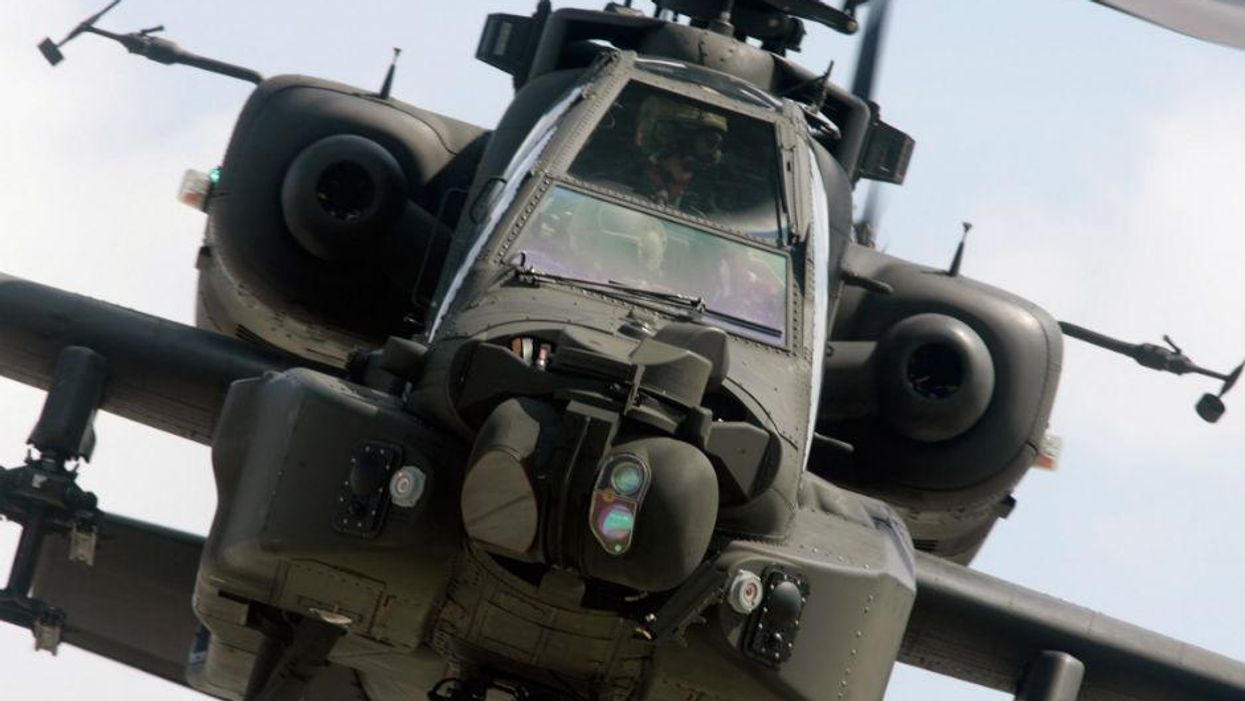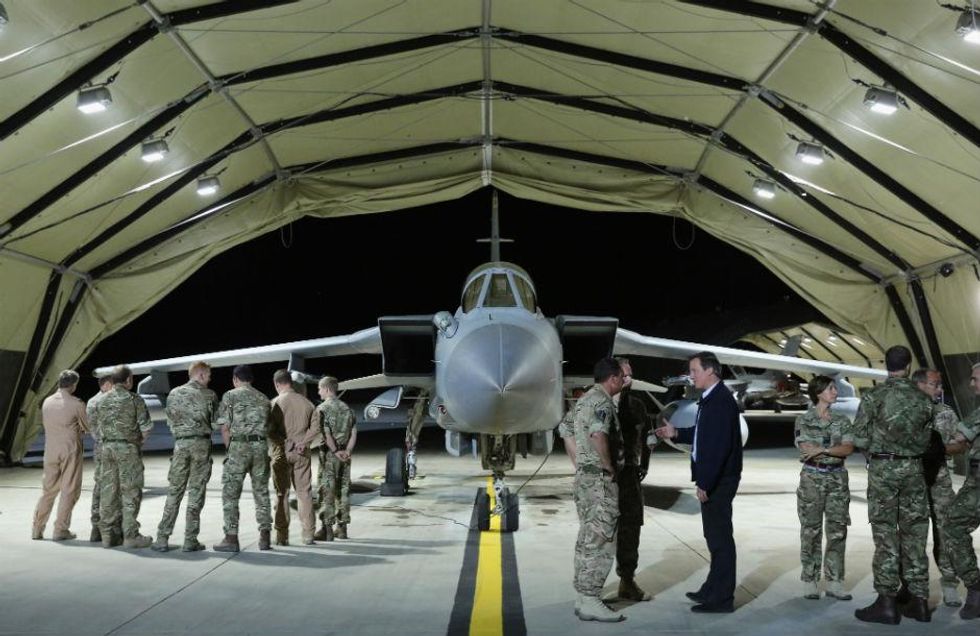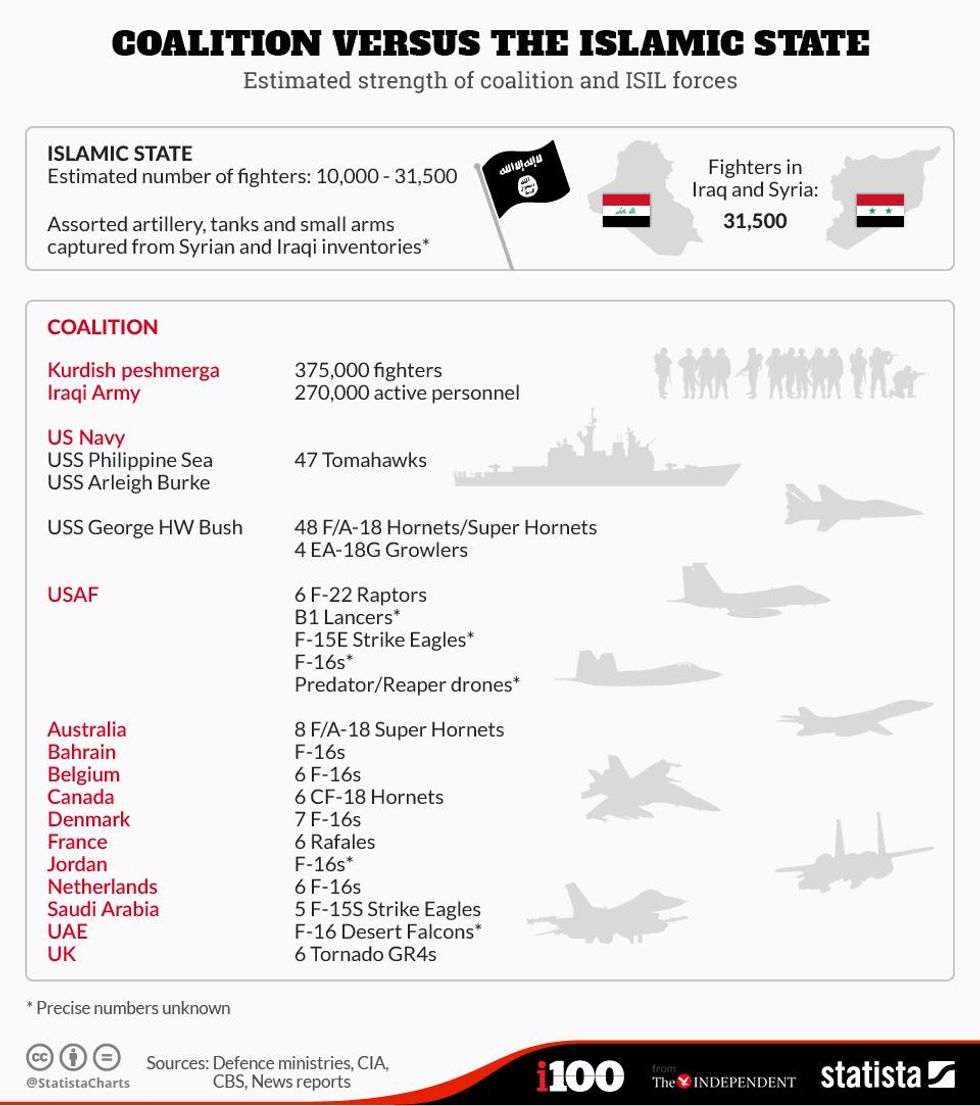News
Evan Bartlett
Oct 29, 2014

An Apache attack helicopter on a training mission at RAF Lyneham, 2008
Reports suggesting that Britain is considering sending a fleet of Apache attack helicopters to fight against Isis in Iraq have been strenuously denied by the Ministry of Defence.
The Times (£) reported this morning that because of the militant group's communications via services like WhatsApp and Facebook, RAF bombers flying at high altitude were finding it increasingly difficult to identify and strike fast-moving Isis targets.
A source at the MoD told i100.co.uk that the suggestion that British Apache helicopters are to be used in Iraq is “completely untrue”.
I’m not sure at what level these discussions were had or by who or in what forum or anything. All I do know is that at all the levels that matter, where planning is conducted, it has not come up.
- MoD source
Any potential use of British helicopters to fight against Isis would be controversial - with military personnel at a higher risk when fighting at closer quarters, accusations of "mission creep" are likely.
Apaches fly at a much lower altitudes and are slower than air force jets and would therefore be more susceptible to any anti-aircraft weaponry that Isis may possess.
Owing to the shorter range of Apaches – around 100-120 miles each way – the helicopters would have to be located close to combat areas and would require ground troops to service them after each flight.
At that range they would not be able to fly from RAF bases in Cyprus or from an aircraft carrier in the Mediterranean and with no air-to-air refuelling options for the helicopters, their involvement is highly problematic.
“The strategy is pretty clear. It’s about reconnaissance, air strikes and training. Everyone has made it clear throughout that we are not sticking boots on the ground,” explained the MoD source.
Although the MoD maintains that its strategy will not change, calls for increased military action are being made with a former general claiming this weekend that air strikes alone are "futile gestures".
If this is serious and a cancer that’s got to be excised, then there’s only one way to do it, which is to go and fight the bastards on the ground.
This hand-wringing about boots on the ground I just find utterly ludicrous, frankly.
- Sir Richard Shirref, Nato’s former deputy supreme allied commander in Europe
Sir Richard Shirref told the Independent on Sunday that the government is "playing politics instead of strategy” because “they are so petrified about overseas military commitment in the face of an election next year – they are not prepared to do anything.”
The difficulties facing air strike missions have been corroborated by the Independent's Middle East correspondent Patrick Cockburn.
He explained that despite the coalition's superior fighting force (see Statista graphic below), the disparate and highly fluid nature of Isis militants means they are difficult to target with air strikes.
The only area of a higher concentration of forces is in Kobani in northern Syria, where Britain is currently not involved in military action.
Earlier this month, the US began deploying its own AH-64 Apaches in the fight in Iraq from its base near Baghdad, although it was also revealed this week that Isis has released a "how-to" guide on shooting down the helicopters.
The MoD source explained to i100.co.uk that the British Army does not have a troop presence in Iraq and that “if the Americans are doing it down there then we wouldn’t need to”.
Interactive: The web of conflicts and alliances in the war with Isis
Top 100
The Conversation (0)














